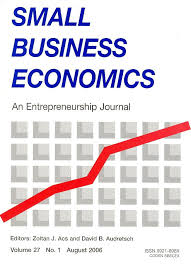
Spinoffs in Germany: Characteristics, Survival, and the Role of their Parents
Using a 50 % sample of all private sector establishments in Germany, we report that spinoffs are larger, initially employ more skilled and more experienced workers, and pay higher wages than other startups. We investigate whether spinoffs are more likely to survive than other startups, and whether spinoff survival depends on the quality and size of their parent companies, as suggested in some of the theoretical and empirical literature. Our estimated survival models confirm that spinoffs are generally less likely to exit than other startups. We also distinguish between pulled spinoffs, where the parent company continues after they are founded, and pushed spinoffs, where the parent company stops operations. Our results indicate that in western and eastern Germany and in all sectors investigated, pulled spinoffs have a higher probability of survival than pushed spinoffs. Concerning the parent connection, we find that intra-industry spinoffs and spinoffs emerging from better-performing or smaller parent companies are generally less likely to exit.




